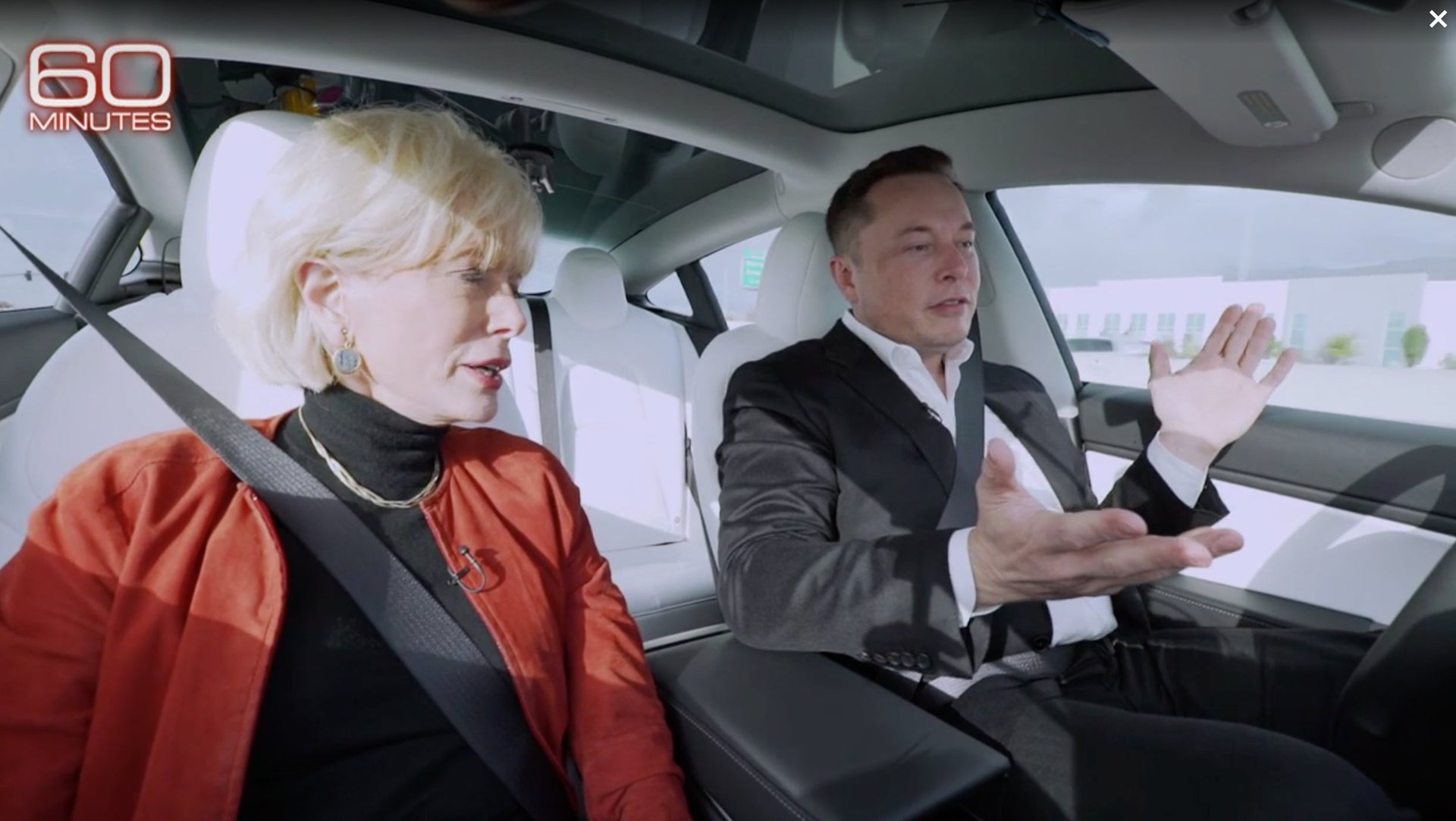Elon Musk decides when his tweets get reviewed by Tesla
Elon Musk rarely backs down from critics. In a wide-ranging, testy interview with 60 Minutes aired last night (Dec. 9), the Tesla CEO doubled down by taking aim at familiar foes.


Elon Musk rarely backs down from critics. In a wide-ranging, testy interview with 60 Minutes aired last night (Dec. 9), the Tesla CEO doubled down by taking aim at familiar foes.
Most of Musk’s ire was directed at the US Securities Exchange Commission (SEC), a regulator Musk has previously mocked as the “Shortseller Enrichment Commission.” In October, a settlement with the SEC forced Tesla to remove Musk as chairman, add more oversight of the CEO’s public statements, and pay a $40 million fine. The SEC charged the founder with fraud a month earlier, for a “false and misleading” statement in which Musk tweeted he was “considering taking Tesla private at $420. Funding secured.” The agency said Musk failed to secure a firm financing agreement or a price for the supposed transaction.
“I want to be clear,” Musk told 60 Minutes host Lesley Stahl. “I do not respect the SEC. I do not respect them.” He said he was abiding by the terms of the settlement only because he respects the US justice system.
Those terms have rankled the outspoken executive. Musk said the idea of more corporate oversight was unrealistic. “I’m the largest shareholder in the company,” he said. “I can call a shareholder vote and get anything done that I want.”
Musk also bristled at the idea his tweets could be subject to internal approval. Musk said the only tweets required to be vetted were the ones that might affect Tesla’s stock price. When Stahl asked how company officers could identify such tweets if they couldn’t read them all in advance, Musk shrugged. “I guess we might make some mistakes, who knows,” he said. “Nobody’s perfect.”
The conversation returned often to Musk’s use of Twitter. ”I used my tweets to express myself,” he said. “Some people use their hair. I use Twitter.” Musk’s popular Twitter feed, with 23.6 million followers, often veers between personal musings, the latest achievements at Tesla or SpaceX, and attacks against his favorite targets: short-sellers, the media, investors, auto unions, and others. At its peak this summer, Musk sent almost 400 tweets per month. While he claims he ”rarely” attacks critics on the social network, he described the site as a “war zone” and defended his actions in that context. “If somebody’s gonna jump in the warzone,” he said, “it’s, like, ‘Okay, you’re in the arena. Let’s go!'”
Musk agreed with Stahl that he doesn’t behave like a traditional CEO. “I am sort of impulsive, and I don’t want to try to adhere to some CEO template,” he said.
Musk took Stahl on a test drive to show her Tesla’s Autopilot feature. The partial self-driving software allows the car to change lanes, follow other vehicles, monitor traffic, and brake for obstacles. But the software has been blamed in lethal crashes in which the car did not detect hazards (a lane divider, a tractor-trailer) while drivers were not paying attention. Critics charged this was due in part to Tesla marketing the system as truly self-driving.
Today, Tesla’s owner’s manual (pdf) and public communications clearly instruct drivers to keep their hands on the steering wheel “at all times,” and the company has tweaked its software to nudge drivers to pay closer attention when the car is in self-driving mode. But during Stahls’ drive, Musk took his hands off the wheel and said the car was driving itself.
“Do you feel safe?” Stahl asked.
“Yeah,” Musk replied.
You can watch the full interview here.